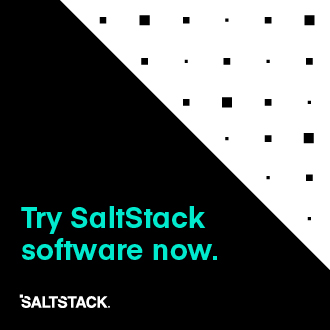Salt 0.14.0 Release Notes¶
- release
2013-03-23
Salt 0.14.0 is here! This release was held up primarily by PyCon, Scale, and illness, but has arrived! 0.14.0 comes with many new features and is breaking ground for Salt in the area of cloud management with the introduction of Salt providing basic cloud controller functionality.
Major Features¶
Salt - As a Cloud Controller¶
This is the first primitive inroad to using Salt as a cloud controller is available in 0.14.0. Be advised that this is alpha, only tested in a few very small environments.
The cloud controller is built using kvm and libvirt for the hypervisors. Hypervisors are autodetected as minions and only need to have libvirt running and kvm installed to function. The features of the Salt cloud controller are as follows:
Basic vm discovery and reporting
Creation of new virtual machines
Seeding virtual machines with Salt via qemu-nbd or libguestfs
Live migration (shared and non shared storage)
Delete existing VMs
It is noteworthy that this feature is still Alpha, meaning that all rights are reserved to change the interface if needs be in future releases!
Libvirt State¶
One of the problems with libvirt is management of certificates needed for live
migration and cross communication between hypervisors. The new libvirt
state makes the Salt Master hold a CA and manage the signing and distribution
of keys onto hypervisors, just add a call to the libvirt state in the sls
formulas used to set up a hypervisor:
libvirt_keys:
libvirt.keys
New get Functions¶
An easier way to manage data has been introduced. The pillar, grains, and config
execution modules have been extended with the new get function. This
function works much in the same way as the get method in a python dict, but with
an enhancement, nested dict components can be extracted using a : delimiter.
If a structure like this is in pillar:
foo:
bar:
baz: quo
Extracting it from the raw pillar in an sls formula or file template is done this way:
{{ pillar['foo']['bar']['baz'] }}
Now with the new get function the data can be safely gathered and a default can be set allowing the template to fall back if the value is not available:
{{ salt['pillar.get']('foo:bar:baz', 'qux') }}
This makes handling nested structures much easier, and defaults can be cleanly set. This new function is being used extensively in the new formulae repository of salt sls formulas.

